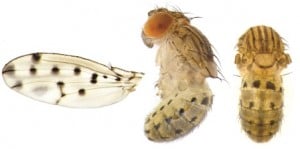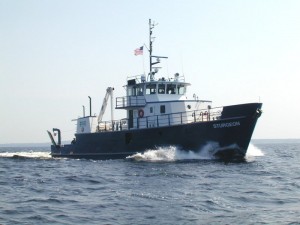Why This Project Is Important
Every year, more than 7 million people die from cancer worldwide. Our ultimate goal is to help developing gene-therapeutic drugs that can stop tumors from growing. This novel work will utilize fruit fly pigmentation patterns, which develop under the control of the same genes that cause cancer in humans. We chose the fruit flies as a model because they grow fast in large numbers and are amenable to a wide variety of genetic approaches.
Project Description
Cancer is caused by genes that were originally “good” genes that have turned “bad”. Every organism needs these genes to develop from an egg into an adult, but when they mutate, they cause tumor development and growth. Fruit flies and humans share these genes and consequently also the cancer-causing genes. We will use fruit flies to study how cancer genes communicate with each other to form tumors. We previously discovered that one of the most notorious cancer genes (Wnt-1) in humans, which is involved in 70% of all human tumors, “paints” the black spots on the wings of the fruit fly Drosophila guttifera (see picture 2). Thus, wherever the cancer-causing gene is active, a black melanin spot will form on the wing, very similar to skin cancer that appears as black melanin spots on the human skin (Xeroderma pigmentosum). In this project, we will use black pigment spots on fruit fly bodies as a model to reveal how cancer gene communication networks function. The short-term goal of this study is to identify new genes that assist the already known cancer genes in the formation of tumors. This knowledge will set the stage for the long-term goal, which is to develop drugs that can switch the cancer genes off or block the the communication between themselves.
The objective of this proposal is to test what genes lead to the body pigment pattern of the spotted fruit fly Drosophila guttifera. We have very good reasons to believe that at least three independently acting cancer gene pathways are contributing to separate parts of the abdominal color pattern, making this fly a really exciting organism to study multiple cancer developmental pathways in parallel. Our research questions are:
1) What cancer genes are involved in the formation of pigment in this fruit fly species?
2) How do the genes interact with each other (and how can we interrupt their interactions)?
3) Where are the switches that turn these cancer genes on and off?
– See more at: http://www.superiorideas.org/projects/fruit-fly-pigmentation#sthash.gK9wUrRK.dpuf






